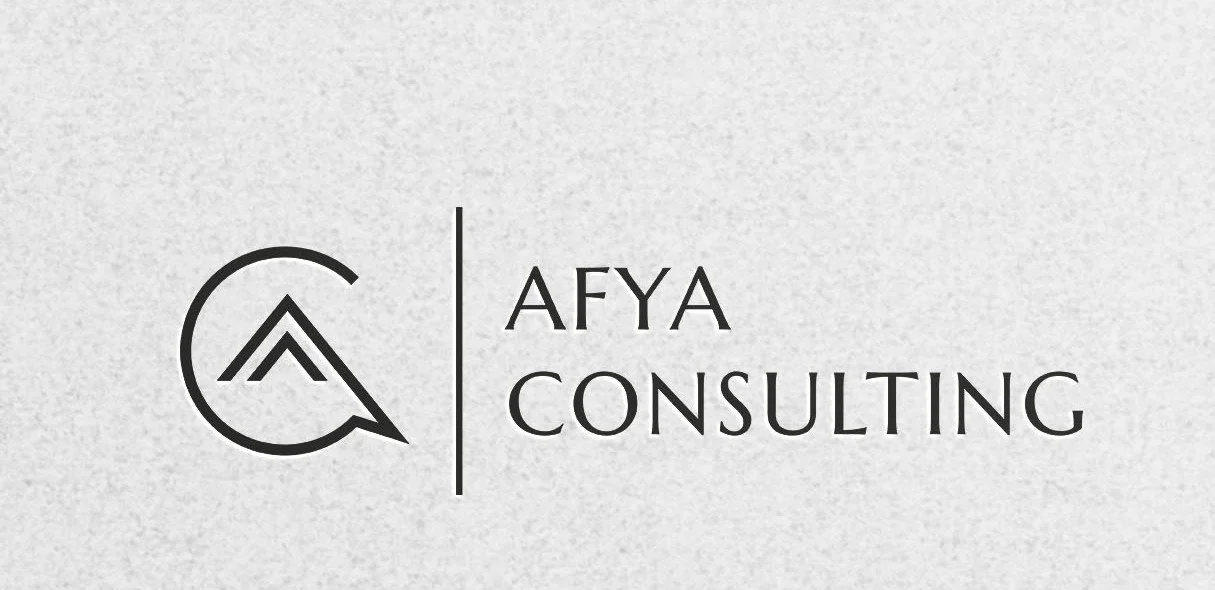Frequently Asked Questions
What services does Afya Consulting offer?
Afya Consulting provides boutique consulting services tailored to the unique needs of non-profits, small businesses, and health-related organizations. We help our clients navigate complex challenges, improve operations, and achieve meaningful impact through strategy development, program design and management, process improvement, and interim leadership.
To learn more about the services we offer for each group, please visit the corresponding page:
Non-Profits
Health Practitioners & Clinics
Global Development Organizations
Small Businesses
What makes Afya Consulting different from other consulting firms?
One of the factors that sets Afya Consulting apart from others is that one of our guiding adages is “bigger isn’t necessarily better.” We are intentionally small so we can provide truly boutique, relationship-based service. That means when you work with us, you’re not handed off to junior staff or lost in a large team — you work directly with an experienced consultant who takes the time to understand your mission, values, and day-to-day realities.
We recognize that some of our clients are looking to grow — and that’s great. But our size is a strategic choice. It allows us to be nimble, personal, and genuinely invested in your success. We don’t believe in one-size-fits-all consulting. Instead, we co-create solutions that are grounded in context, driven by data, and shaped by the unique goals of your organization or business.
Another factor that sets Afya Consulting apart is its leadership. Jo-Ann Bateman is a seasoned leader with a diverse background spanning the non-profit, public, and private sectors — including health, global development, and tourism — both in Canada and internationally. She brings experience not only as a consultant but also as a senior leader and frontline employee, offering a 360-degree understanding of how organizations operate at every level. Her cross-sector and global experience has sharpened the core strengths that define Afya’s approach: relationship building, diplomacy, strategic thinking, stakeholder engagement, and partnership development. This well-rounded perspective informs every engagement, ensuring that our support is both practical and high-impact.
Where are you based and do you work with clients outside your region?
Afya Consulting is based in British Columbia, Canada on the Pacific Time Zone (same time zone as Seattle, WA, USA). We are pleased to support organizations located anywhere in Canada and internationally.
How do we know if Afya Consulting is the right fit for us?
Please feel free to book a complimentary 30 minute meeting to discuss your organization’s challenges, goals and needs. If Afya Consulting can’t support, we will put you in touch with other options.
What is the Difference between Coaching, Advising and Consulting?
Great question! While these approaches can sometimes overlap, in general, they serve different purposes:
Coaching is designed to help individuals unlock their own potential. A coach provides reflective questions, structure, and accountability so the client can discover solutions themselves.
Advising involves offering guidance or recommendations based on experience. Advisors often provide input to help leaders or teams make informed decisions.
Consulting goes a step further by not only analyzing problems and offering solutions but also co-designing and, if needed, implementing strategies alongside the client.
At Afya Consulting, our focus is consulting — we provide collaborative, hands-on support to strengthen organizations. That said, we occasionally step into advisory conversations, and we’re happy to connect clients to excellent coaches if coaching is what they’re looking for.
How does Afya Consulting approach equity and inclusion in its work?
Our values of equity and inclusion are embedded in our approach. We believe that the most effective strategies are those that reflect diverse perspectives and lived experiences. That means we:
Engage stakeholders meaningfully in the process.
Use evidence and data responsibly, ensuring findings are accessible and actionable.
Co-create solutions that prioritize fairness, accessibility, and sustainability.
